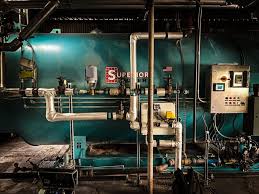boiler for hot press machine manufacturer
The Role of Boilers in Hot Press Machine Manufacturing
Hot press machines are essential in various industries, including woodworking, plastics, and textiles. They utilize heat and pressure to bond materials, and a critical component that ensures their optimal performance is the boiler. Boilers provide the necessary steam or hot water that facilitates the heating process essential for the effective functioning of hot press machines. This article explores the importance of boilers in hot press manufacturing, the types of boilers available, and factors to consider when choosing a boiler for hot press applications.
Importance of Boilers in Hot Press Machines
The operation of hot press machines relies heavily on consistent high temperatures and controlled pressure levels. The quality of the final product hinges on the efficiency and reliability of the heat source, and boilers are at the forefront of this process. Boilers generate steam or hot water that is circulated to heat platens or molds, which then apply pressure to the material.
Efficient heat transfer is vital in ensuring uniform heating, as discrepancies in temperature can lead to uneven bonding and compromised structural integrity of the product. Therefore, selecting a high-quality boiler with precise temperature control capabilities is crucial for manufacturers looking to enhance product quality and consistency.
Types of Boilers for Hot Press Machines
There are several types of boilers commonly used in hot press applications
1. Fire-Tube Boilers These boilers have hot gases passing through tubes surrounded by water, transferring heat to the water to create steam. They are known for their durability and efficiency, making them suitable for a variety of industrial applications.
2. Water-Tube Boilers In contrast to fire-tube boilers, water-tube boilers have water flowing through tubes that are heated by external hot gases. They can produce steam at higher pressures and temperatures, making them ideal for large-scale operations that require a significant amount of high-pressure steam.
3. Electric Boilers These boilers use electricity to generate steam or hot water. They are compact, easy to install, and require less maintenance than traditional fuel-based boilers. Electric boilers are particularly effective for smaller operations or situations where emissions reduction is a priority.
boiler for hot press machine manufacturer

4. Biomass Boilers More environmentally friendly than conventional boilers, biomass boilers use organic materials (like wood pellets) as fuel. They can be an excellent choice for companies focused on sustainability, as they help reduce carbon emissions and meet regulatory standards.
Choosing the Right Boiler
When selecting a boiler for a hot press machine, several factors must be considered
- Capacity Understanding the steam or hot water requirements for the hot press machine is critical. The boiler must have sufficient capacity to meet the needs of the production process without interruption.
- Efficiency Energy efficiency is vital for long-term cost savings. Opt for a boiler that minimizes fuel consumption while maximizing output. High-efficiency models, although potentially more costly upfront, can significantly reduce operational costs over time.
- Size and Space The boiler’s physical size and layout must align with the available space in the manufacturing facility. Consideration of space helps prevent operational disruptions and makes maintenance more accessible.
- Type of Fuel The choice of fuel can impact the operational cost and efficiency of the boiler. Companies must assess the availability and cost of different fuel types to ensure economic feasibility.
- Regulatory Compliance Adhering to local regulations concerning emissions and safety standards is crucial. Ensure the boiler meets all necessary certifications to avoid legal issues and penalties.
Conclusion
Boilers play a vital role in the efficiency and effectiveness of hot press machines across various industries. By providing the essential heat and pressure, they are integral to the production process. By understanding the different types of boilers available and carefully considering factors such as capacity, efficiency, and compliance, manufacturers can select the appropriate boiler to enhance productivity, reduce costs, and improve product quality. In an industry that continually seeks to innovate and improve, investing in the right boiler technology is a step toward future-ready manufacturing.
-
Top Electric Steam Boiler Manufacturers – Efficient Industrial SolutionsNewsJul.29,2025
-
Top Electric Steam Boiler Manufacturers | Reliable Industrial SolutionsNewsJul.29,2025
-
OEM Steam Boiler Solutions for Custom Needs | High Efficiency & VersatilityNewsJul.29,2025
-
High-Efficiency Thermal Oil Boiler for Industrial Heating SolutionsNewsJul.29,2025
-
Top Electric Steam Boiler Manufacturers for Industrial EfficiencyNewsJul.28,2025
-
Top Electric Steam Boiler Manufacturers | Industrial Solutions & CustomizationNewsJul.27,2025

